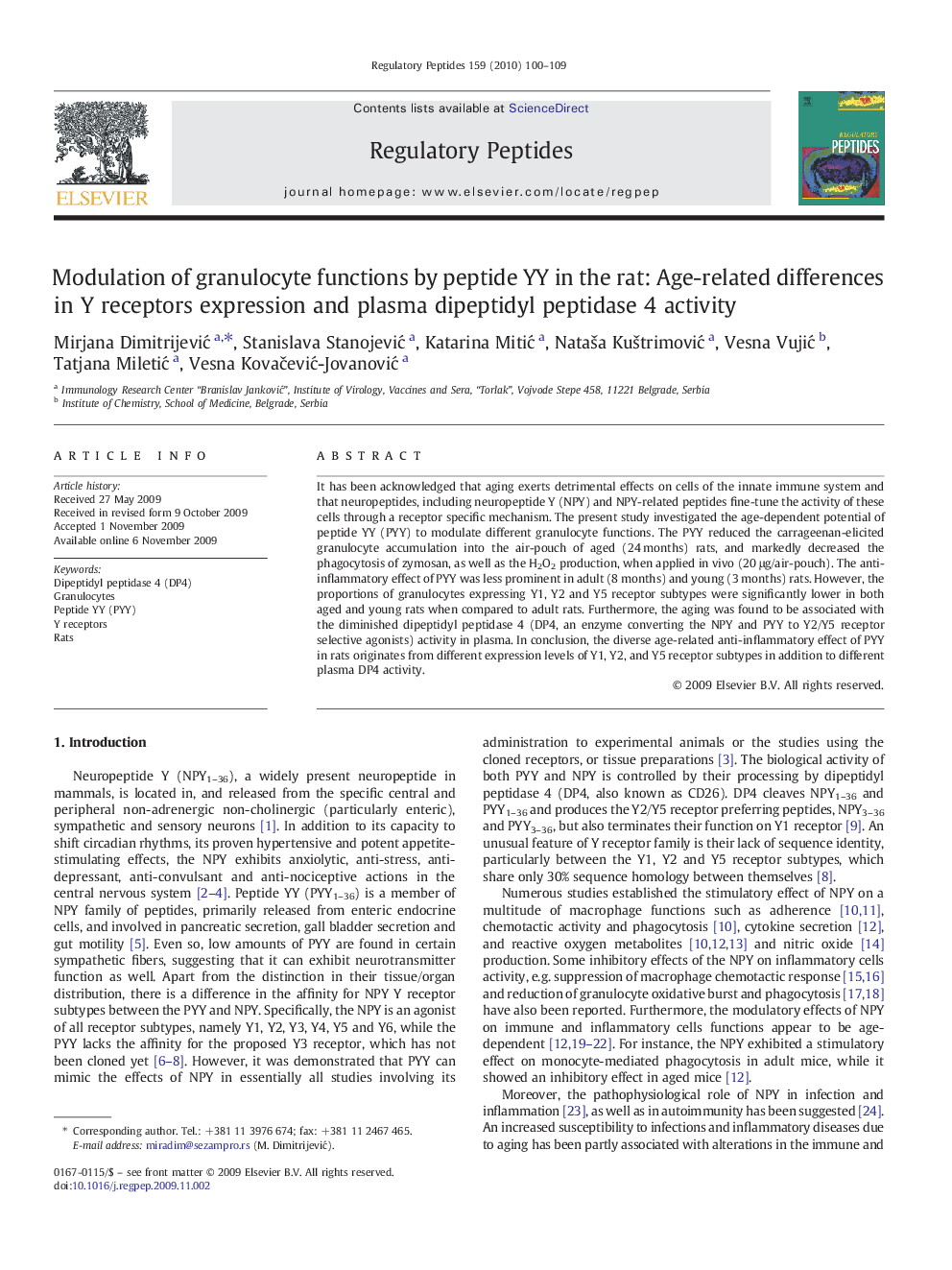| Article ID | Journal | Published Year | Pages | File Type |
|---|---|---|---|---|
| 2022980 | Regulatory Peptides | 2010 | 10 Pages |
Abstract
It has been acknowledged that aging exerts detrimental effects on cells of the innate immune system and that neuropeptides, including neuropeptide Y (NPY) and NPY-related peptides fine-tune the activity of these cells through a receptor specific mechanism. The present study investigated the age-dependent potential of peptide YY (PYY) to modulate different granulocyte functions. The PYY reduced the carrageenan-elicited granulocyte accumulation into the air-pouch of aged (24 months) rats, and markedly decreased the phagocytosis of zymosan, as well as the H2O2 production, when applied in vivo (20 μg/air-pouch). The anti-inflammatory effect of PYY was less prominent in adult (8 months) and young (3 months) rats. However, the proportions of granulocytes expressing Y1, Y2 and Y5 receptor subtypes were significantly lower in both aged and young rats when compared to adult rats. Furthermore, the aging was found to be associated with the diminished dipeptidyl peptidase 4 (DP4, an enzyme converting the NPY and PYY to Y2/Y5 receptor selective agonists) activity in plasma. In conclusion, the diverse age-related anti-inflammatory effect of PYY in rats originates from different expression levels of Y1, Y2, and Y5 receptor subtypes in addition to different plasma DP4 activity.
Related Topics
Life Sciences
Biochemistry, Genetics and Molecular Biology
Biochemistry
Authors
Mirjana DimitrijeviÄ, Stanislava StanojeviÄ, Katarina MitiÄ, NataÅ¡a KuÅ¡trimoviÄ, Vesna VujiÄ, Tatjana MiletiÄ, Vesna KovaÄeviÄ-JovanoviÄ,
